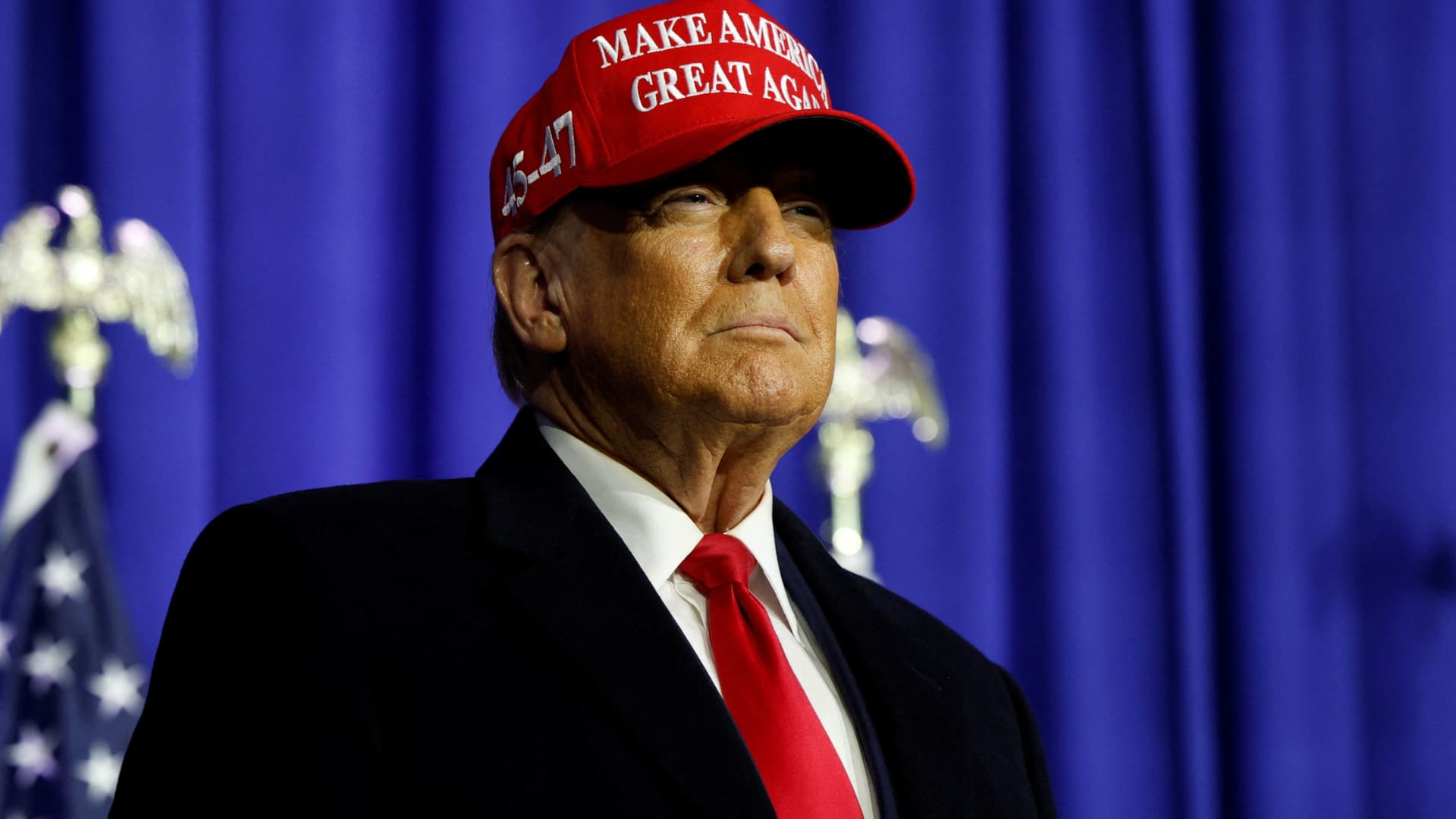Michigan’s presidential primary on Tuesday will offer a serious test of President Joe Biden’s ability to navigate dissent within the Democratic Party over his response to Israel’s war with Hamas. The leading Republican in the White House race, former President Donald Trump, is looking for another primary win that would add to his sweep of the early-voting states and move him that much closer to becoming his party’s nominee.
The Michigan contest is the final major race before the election calendar broadens dramatically on Super Tuesday, March 5. That’s when more than a dozen states will hold elections with thousands of delegates at stake.
The results this Tuesday will be closely watched for any clues about where Michigan is trending before the November election. With a narrow win in 2016, Trump became the first Republican presidential candidate to carry the state since 1988, securing his path to the White House. Biden reclaimed the state for Democrats in 2020, contributing to his defeat of Trump.
Some things to watch heading into the Michigan primary:
Biden is facing minimal opposition from Democrats and his grip on the nomination is not in doubt. But primary voters in Michigan can pick “uncommitted,” which could give some in his party the option of casting what is essentially a protest vote.
That could prove especially enticing in a state with the highest number and concentration of Arab Americans. Biden is facing intense pressure to press for a permanent cease-fire in the Israel-Hamas war, to the point that a core group of elected officials has joined a campaign to promote backing “uncommitted” instead of the president on Tuesday.
The potential of an “uncommitted” win is highly unlikely. But if that option receives notable double-digit support, it could serve as an early warning sign for Biden heading into the general election, signaling that core Democratic constituents won’t simply fall in line with the president. That’s critical for Biden because if these voters stay home in November, the state could slip away, raising pressure on him to flip other Republican-leaning states such as North Carolina, Florida or Ohio.
For evidence of the “Listen to Michigan” campaign’s effectiveness, pay particularly close attention to Dearborn, a suburb of more than 109,000 southwest of Detroit with a Muslim and Arab American population of more than 50%.
Biden’s team sent top administration officials to meet with Arab American and Muslim leaders in Michigan this month. Biden’s campaign manager, Julie Chavez Rodriguez, and other political aides visited last month but found a number of community leaders unwilling to meet. Biden was in Michigan on Feb. 1 to court union voters while Vice President Kamala Harris was in the state Thursday to discuss abortion and to advocate for reproductive rights. On Saturday, Biden joined a campaign organizing call with Gov. Gretchen Whitmer and Michigan Democratic Party Chair Lavora Barnes.
Republican Nikki Haley has spent the past several weeks focusing on campaigning in her home state of South Carolina, where Trump beat her soundly in the first Southern primary of 2024.
While Haley has spent little time in Michigan, she planned to campaign Sunday in suburban-heavy Oakland County and western Michigan’s GOP hub, Grand Rapids, on Monday. The two spots, populous and with a wide range of Republican and independent voters, fit with Haley’s effort to reach beyond the conservative core, which in Michigan, as elsewhere, is vastly loyal to Trump.
Trump has campaigned in Michigan recently as well, including at a private air hangar in Oakland County last week, where he drew more than 2,000.
But there has been little appetite for anti-Trump Republicans in Michigan. Peter Meijer was elected to the U.S. House from Grand Rapids in 2020 and was quickly defeated for reelection two years later after he voted to convict Trump during the second impeachment after the violent Jan. 6, 2021, Capitol siege by pro-Trump protesters.
Meanwhile, the Michigan Republican Party is trying to emerge from an internal struggle between competing pro-Trump factions. Despite the conflict, Trump remains the heavy favorite among the party’s rank and file, while incoming state GOP Chairman Pete Hoekstra is a Trump loyalist with ties to wealthy donors.
While Biden faces questions about the intensity of his support among some Democrats, there is plenty of GOP turmoil in Michigan.
Though the party’s most active members heavily support Trump to be the 2024 nominee, a power struggle inside the state party organization could complicate his team’s effort to organize the state to turn out the vote in November.
The state party organization is facing more than $600,000 in debt under ousted Chair Kristina Karamo, though Karamo refuses to step aside despite the ouster and Trump’s endorsement of Hoekstra, a former congressman who was Trump’s ambassador to the Netherlands.
Hoekstra has pledged to restore relationships with longtime donors. Koroma refused to meet with some of them or turned them off by criticizing them as insufficiently conservative or out of step with Trump.
Still, Hoekstra has said it will be difficult to rebuild fewer than nine months a state party that, in recent presidential cycles, has operated with a budget of $20 million to $30 million.
Trump beat Democrat Hillary Clinton in Michigan in 2016 by fewer than 11,000 votes.
Biden carried the state in 2020 by fewer than 155,000 votes. That 2.6 percentage point margin was the sixth-narrowest of all 50 states.





